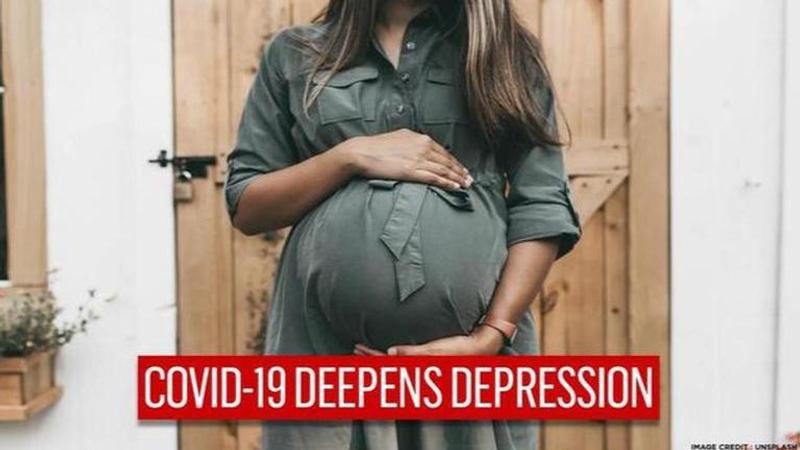Published 19:29 IST, December 6th 2020
Coronavirus increases depression and anxiety among pregnant, postpartum women: Study
As a part of a new study published in Psychiatry Review, researchers from Brigham and Women’s Hospital surveyed pregnant women and those who recently gave birth

As a part of a new study published in Psychiatry Review, researchers from Brigham and Women’s Hospital surveyed pregnant women and those who recently gave birth concluding that Covid-19 has been contributing to depression, generalised anxiety, and post-traumatic stress disorder (PTSD) symptoms. Titled as, ‘Perinatal Experiences and Covid-19 Effects Study (PEACE)’, the study aimed at understanding mental health well-being of pregnant and postpartum individuals in the United States during the Covid-19 pandemic. As per ANI reports, a total of 1,123 women were surveyed between May 21 and August 17, 2020 and it was found out that more than 1-in-3 (36.4 percent) reported clinically significant levels of depression.
A new revelation
Corresponding author Cindy Liu, PhD, of the Department of Pediatric Newborn Medicine and the Department of Psychiatry said, “We know the perinatal period is already a time in which women are particularly vulnerable to mental health concerns. We primarily wanted to see what factors related to the pandemic might be associated with mental health symptoms.'' The participants of the study were recruited through word-of-mouth, using posts on email lists and in social media groups.
The study said that before depression, the rate of perinatal depression was considered to be 15-20 per cent. Also, 22.7 per cent reported clinically significant levels of generalized anxiety and 10.3 per cent reported symptoms above the clinical threshold for PTSD. Talking about the issue, Liu said, “People who are working from home, who have maternity leave, or who simply have the time to do a survey like this are disproportionately white and well-off. That is a limitation to this work. Through a survey, we can get in-depth information very quickly, but we are missing the perspectives of various important segments of the population”.
Co-author Carmina Erdei, MD, of the Department of Pediatric Newborn Medicine also expressed his views as he said, “We were looking for associations that inform what we can do as clinical providers to better support families during this time. We wanted to know what is being taken away when a new mother is not able to participate in the usual rituals around birth and welcoming a new family member. The survey responses offer valuable insight into that and help guide what we as health care professionals can do better”.
Previously, a different study by mental health therapists warned that cases of anxiety and depression were on the rise in the post-pandemic lockdown world. A nonprofit Mental Health America report cited an increase in the number of patients screening themselves for depression and anxiety. The screenings were up more than 400 percent thought the mid-year, it said, compared to January 2020, the start of the year. Signs such as hopelessness, feeling of failure, or lack of interest in previously enjoyed activities are among key issues reported by nearly half of the US adults that sought therapy, the recent study conducted by health experts published in the medical journal JAMA Network Open revealed. BU study surveyed 1,440 US adults who were observed for depression symptoms. Doctors found that most adults reported several outbreak-related troubles ranging from financial, emotional, social problems, including COVID-19 deaths of a loved one or fears stemming from it.
(Image Credits: Unsplash)
Updated 19:29 IST, December 6th 2020



